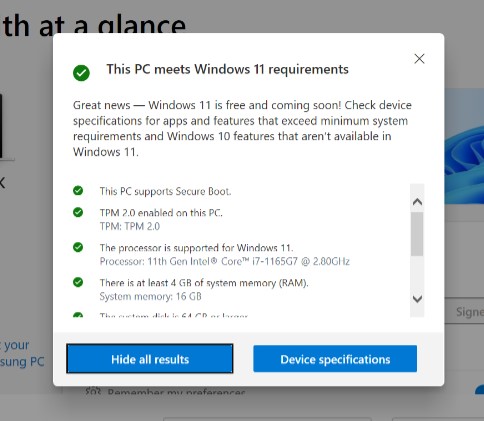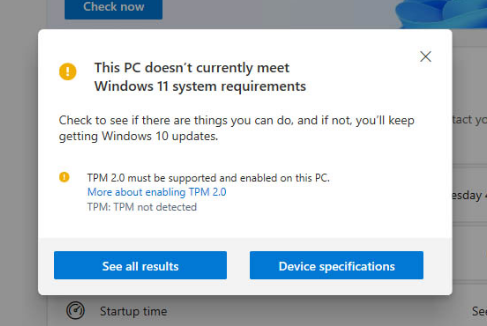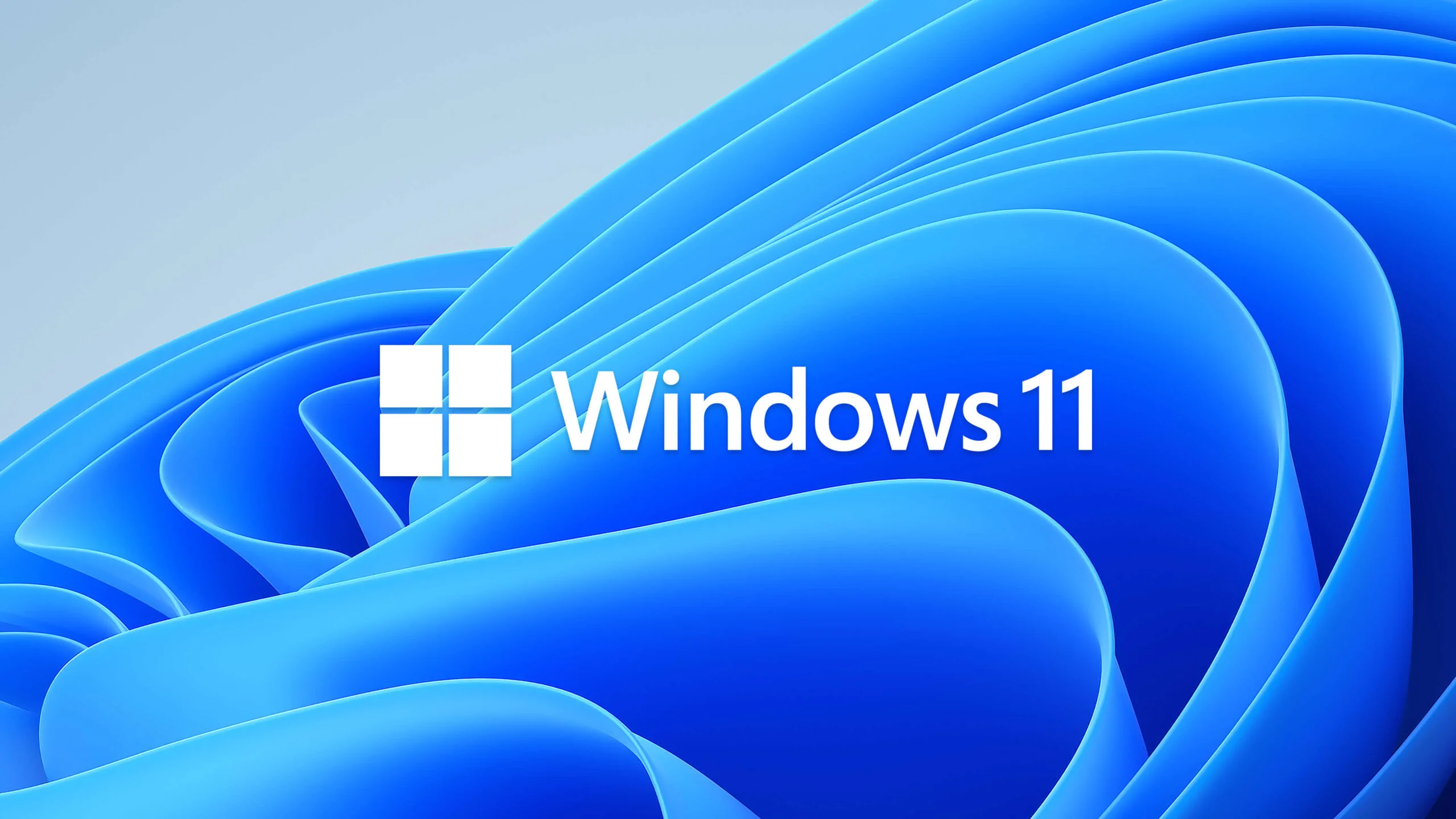Most common Windows 11 problems and How to fix them
Even though Microsoft is trying to make everyone like the latest version of Windows, it is not a reason to ignore Windows 11 bugs and not fix them.
Windows 11 is the latest and, of course, the most popular version of Windows, which provides users with many security and practical features. Of course, there are bugs, some of which are very easy to fix and some so difficult that you have to wait for them to be solved by Microsoft itself.
After the users started using Windows 11, there were reports about some problems and issues that surely, if an issue is very important to the user, the importance of advanced features and functions of Windows 11 will be much less. Became. This guide will help you troubleshoot and fixing Windows 11 bugs, so don’t miss the next article:
A brief introduction to Windows 11
Windows 11 is the latest major version of Microsoft’s Windows operating system, released in October 2021. Microsoft has focused more on this version to satisfy users interested in modern environments with high performance by adding new and advanced features.
In addition to major changes in the appearance and design of widgets, Microsoft has also taken admirable measures in terms of security and efficiency.
If you care about performance, rest assured that Windows 11 is the ideal choice. The work done by this version in the field of memory management, increasing the speed of SSD, and strengthening the system performance when waking up from SLEEP mode is only a part of the changes in Windows 11.
But since Windows 11 is older and less stable than older versions like Windows 10, it has a relatively good share of bugs. Like any other application and software that has problems after release due to high usage and heavier tasks. Of course, Microsoft itself does all the necessary work to fix some Windows 11 bugs, but what’s wrong with it is when we encounter a bug? We find the solution as soon as possible instead of waiting for the bugs to be fixed. In the next update, we will fix it ourselves. So it’s time to start checking Windows 11 bugs and how to fix them:
The most important bugs of Windows 11
In this section, we examine the most important bugs that you may encounter when working with Windows 11, and we hope that you will fix them as soon as possible with the solutions provided:
Upgrade process bugs
Users interested in upgrading their Windows version often face a series of problems due to the lack of compatibility of the system with the minimum hardware requirements of their system. The most important of them are the following:
1) Processor: 1 GHz or faster with at least two cores on a 64-bit compatible processor or SoC
2) RAM: 4 GB
3) Storage space: at least 64 GB
4) System firmware: UEFI with secure boot capability
5) TPM: TPM version 2.0
6) Graphics card: compatible with DirectX 12 or later with WDDM 2.0 driver
7) Screen: high resolution (720), 8 bits per color channel
8) Internet: requires an Internet connection and a Microsoft account
solution)
To solve this problem, the first thing you need to do is to check the compatibility of your system with Windows 11. Of course, keep in mind that if the system on which Windows 10 is installed is ready and has the necessary conditions for upgrading, the update notification will appear in the Windows update section.
Suppose you did not receive such a message. In that case, there is no need to worry because sometimes Windows Update itself cannot detect compatibility or even mistakenly detects that your system is not compatible with Windows 11. So it is better to measure the conditions yourself using Microsoft’s PC Health Check program. This program tells you whether your system meets the minimum requirements for installing Windows 11 and what you need to do to meet them.
If the system is eligible to upgrade to Windows 11, you will see the following message.

Otherwise, your system does not have the minimum hardware requirements to install Windows 11, and the program’s message will be as follows.
Our work begins when we encounter an incompatibility message:

Check for PC Health Check program errors
Often, the program will tell you what the problem is, and with this notification, it will be easier for you.
For example, in the picture below, you can see that the problem is with the TPM version, and the system does not have a TPM 2.0 chip. In such cases, the desktop admin should enable UEFI before running the PC Health Check program to ensure this.
If the system does not support TPM 2.0, you cannot install Windows 11, and apparently, the reason for this is the security features that Microsoft has included for Windows 11. If your system was built within the last 5-10 years, chances are that you can still switch it on in your BIOS even if you don’t have TPM 2.0 enabled. To do this, restart your system and open the BIOS menu. Next, look for the TPM settings section to see if there is a way to enable it.
Of course, there is another solution to solve this problem. That is to create a registry key. This key allows Windows 11 to be installed as long as the system supports TPM 1.2, which Microsoft itself does not recommend, and you will likely encounter a series of serious problems and errors later on.
If the problems shown in the message of this program are solvable, you are very lucky, but otherwise, there is still a solution for you.
Clean installation of Windows 11 with ISO file
However, if your system doesn’t meet the minimum requirements to install Windows 11, you still don’t need to feel stuck and have no choice but to buy a Windows 11-compatible system.
You can clean and install Windows 11 using an ISO file. To learn this installation method, you can read the article “How to install Windows 11 with flash boot”; But don’t forget that during installation, you may receive a message that Windows 11 is incompatible with the system. This installation model can deprive you of many updates and damage your system (unlikely, of course).
Low internet speed
According to Google reports, there is a series of problems between Windows 11 and some Intel network software such as “Killer” and “SmartByte” that can cause a decrease in Internet speed, especially slower loading of websites and videos.
solution)
This error is one of the most important Windows 11 bugs for which a definitive solution has not yet been provided, and it is expected that it will be solved in Microsoft’s updates. You can use the Update section of your system or download updates from Microsoft’s website for quick access to updates.
Until this bug is solved by Microsoft itself, if necessary, you can use a USB WIFI dongle to improve the Internet speed.
Search problem in the start menu
According to the reports of some users, there is a problem with the start bar, especially the search section, which prevents typing. This problem is a bit annoying for people who like to use the built-in search feature of the start menu, which can seriously slow down the speed of working with the system. Microsoft itself has accepted this problem and has proposed its solution.
solution)
Although searching for programs by other methods is possible, it can take some time. Therefore, the only thing you have to do to fix this bug (Microsoft’s suggested method) is to open the Run program by pressing the combination key Windows key + R and then close it without doing anything. Then check whether the search section or the whole startup is working.
The exact time for fixing this bug is not known. Still, it is certainly expected that instead of this relatively simple and superficial solution, a more permanent solution will be considered for this problem.
Problems with File Explorer
In this section, we examine two problems related to File Explorer Windows 11, one related to its appearance and the other related to its malfunction.
1) Similar format to Windows 10
After upgrading to Windows 11, some users encounter File Explorer, similar to Windows 10, which is one of the bugs of Windows 11 and, of course has a simple solution.
solution)
- Open File Explorer and click the View tab.
- Click on the “Options” item on the right side and select “Change Folder and Search Options.”
- In the window that opens, click View.
- Next, from the list that appears, remove the tick from the “Launch folder windows in a separate process” option.
- Finally, click the Apply button to apply the changes.
After this, File Explorer will be closed and reopened, and by viewing it, you will notice that its appearance and format have changed to Windows 11 File Explorer.
2) File Explorer malfunction
If, for any reason, your Windows 11 file explorer does not open or its performance is disrupted, and you cannot use it, you can try the following solution.
solution)
Open File Explorer and after clicking the View tab, select Options.
Finally, uncheck the “Open folders in a separate process” option and click Apply.
Windows 11 memory problems
According to the reports of some Windows 11 users, sometimes there is a memory leak problem that causes File Explorer to consume a lot of RAM, which after a while causes memory problems and slows down the operating system. A memory leak refers to using too much RAM to perform a task.
solution)
Although Microsoft has not confirmed this bug, there is a simple solution to solve this problem:
In the Search section of the Start menu, type Task Manager and open it.
Then click on Windows Explorer and restart the system file explorer by pressing the Restart button at the bottom right. Of course, restarting the system itself will have the same result.
Automatic activation of OneDrive when the system is turned on
As Microsoft insists that you use its Edge browser to open links, Redmond also insists that you use OneDrive to store files, and that is why this program starts automatically when you open the system.
In addition to storing files in the cloud, this, unfortunately consumes your CPU, RAM, and bandwidth unnecessarily and can cause system performance to drop.
solution)
Click on the arrow in the taskbar and right-click on the OneDrive icon that looks like a cloud.
Then select Setting, and next, remove the tick “…Start OneDrive automatically” and click Ok.
The inability to change the size of the taskbar
One of the simple features that Windows 11 has deprived its users of is that the user cannot change the taskbar size if necessary. But there is a solution with which you can change the size of your taskbar to small, medium, or large.
solution)
Press Win+R, then type Regedit and click OK.
Next, you should go to the following path.
HKEY_CURRENT_USER\Software\Microsoft\Windows\CurrentVersion\Explorer\Advanced.
- Next, in the right panel, right-click and create a new DWORD by selecting New->DWORD (32-bit) Value.
- Could you include the name TaskbarSi for it?
- Then click on it twice to open the corresponding pop-up. Then, in the Value data section, put one of 0, 1, and 2 (small, medium, and large) and click ok.
- Finally, close Regedit and restart the system.
Disturbance in the Setting section
If for any reason, the Settings section of the system did not run and a green error screen with the 🙁 icon appeared instead, there is no need to worry, the Settings section has crashed and you can solve it with some solutions.
solution)
1. Try to open Settings anyway.
- Click Start and from the menu, find and click Settings.
- Click Start and type Settings and select from the list.
- Right-click Start and select Settings.
- Press Win+R and type start ms-settings and press Enter
2. Open the file system check section.
Open PowerShell.
Type sfc /scannow and press Enter.
3. Run the Windows Update troubleshooter.
4. Uninstall and reinstall the Settings app.
Open PowerShell.
Copy the following text into the text box.
Get-AppXPackage | foreach {Add-AppxPackage -DisableDevelopmentMode -Register “$($_.InstallLocation) \AppXManifest.xml”}
and press Enter.
Encountering the message “Standard hardware security not supported.”
Seeing this message means that your system does not support memory integrity and kernel isolation and may have limitations such as TPM 2.0 not being supported, secure boot not being enabled, DEP and not being enabled. You have two solutions to solve these problems:
solution)
1. Report the error to Microsoft.
2. Use a more stable version. Maybe the best way is to go back to Windows 10 again.
FixWin 11: a tool to fix all Windows 11 bugs
FixWin 11 is the best software that you can use to fix Windows 11 problems and bugs. This program is optimized to support Windows 10 and Windows 11 operating systems, and with a simple click, it will fix your desired bug.
The intended bugs in this program are divided into 6 categories, each of which covers its own bugs. These 6 categories are:
File Explorer: Provides methods for solving problems with Windows File Explorer.
Internet & Connectivity: This category allows you to fix internet problems that you encountered after upgrading your Windows.
System fixes: fixes common problems that exist in Windows and includes options such as re-registering all system DLL files and fixing activation issues.
System Tools: Used to repair internal tools that may not work properly. The Advanced System Information tab provides advanced and specific information about the system, such as the number of threads in the processor, the number of logical processors, the maximum display resolution and the maximum refresh rate.
Troubleshooters: This section provides direct links to open the built-in Windows troubleshooters.
Additional Fixes: Provides some additional solutions to solve Windows 10 and 11 errors.
How to use FixWin 11
First of all, it is better to run System File Checker and run sfc /scannow to check and replace the corrupted Windows system file. This process will probably take about 5 to 10 minutes. Restart your system if prompted.
If you have problems with store apps, click Re-Register Store Apps to re-register the apps.
You can also use Repair Windows System Image to repair the Windows system image to solve the problems you have in this field.
In general, it is recommended to create a System Restore Point before making any changes to the system because it will help you go back to the current restore point. After that, do one fix at a time and restart the system. If you find that you are not satisfied after the change, you can go back to a restore point.
If you want to know a little more about the fixes that are going to be made, be sure to click Help next to Fix before clicking Fix next to the bug description.
In general, using this tool makes it a little easier to know about Windows 11 bugs and how to solve them, and it certainly opens the way to fix bugs more easily and quickly.
Conclusion
Windows 11 is the latest version of Microsoft Windows, which is why it is unstable. Therefore, the presence of various bugs in an unstable system is much more, and Windows 11 users have also submitted reports on this matter. It is better to consider the importance and necessity of every bug you encounter. If you need to solve it as soon as possible, it is better to use the appropriate troubleshooting methods or FixWin 11 tool. If not, it is better to wait for Microsoft to solve it in the next updates.
Thank you for staying with us until the end of the article. We hope that reading this article was useful for you. If you have any questions, or requests and need guidance, you can contact us by registering your opinion so that we can answer you as soon as possible.

